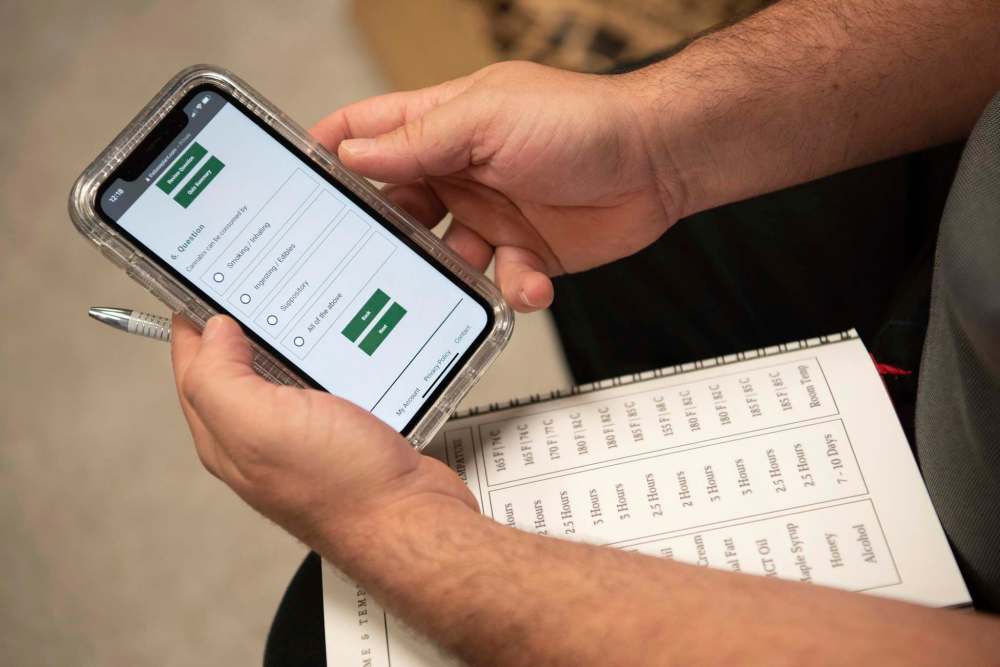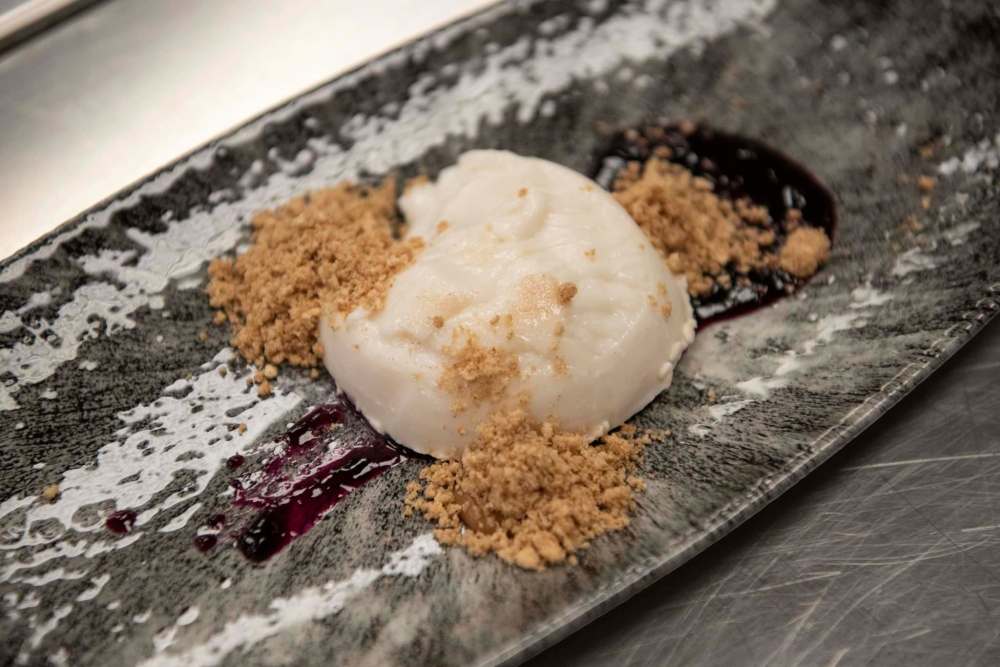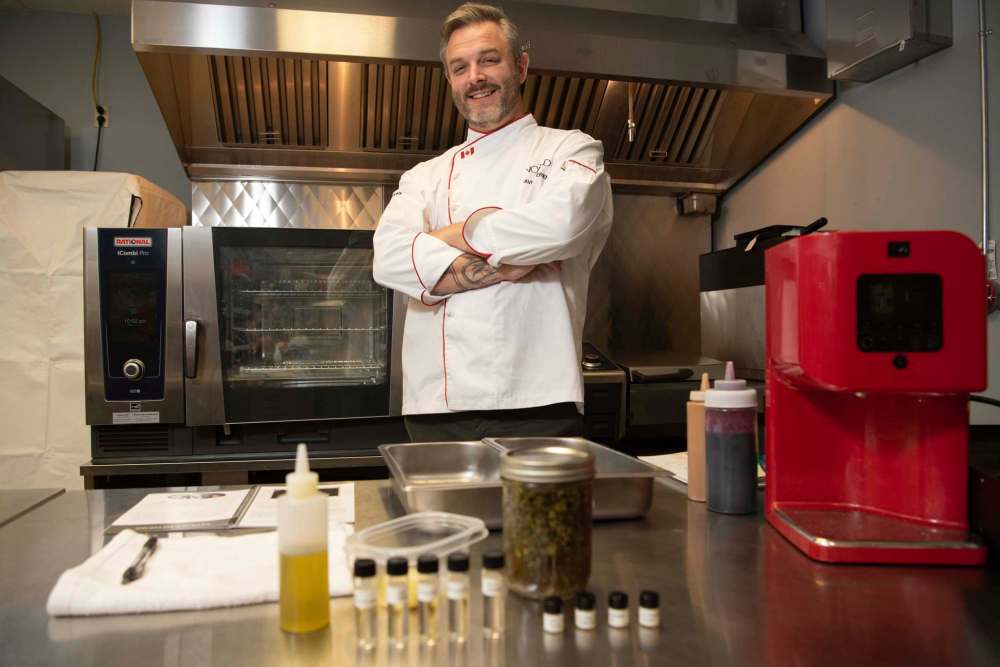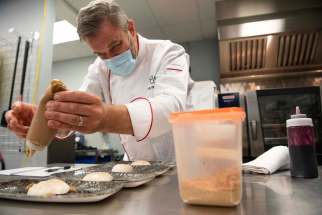Eat your greens It's a culinary trend, but cooking with cannabis requires more than just pot and pans
Read this article for free:
or
Already have an account? Log in here »
To continue reading, please subscribe:
Monthly Digital Subscription
$0 for the first 4 weeks*
- Enjoy unlimited reading on winnipegfreepress.com
- Read the E-Edition, our digital replica newspaper
- Access News Break, our award-winning app
- Play interactive puzzles
*No charge for 4 weeks then price increases to the regular rate of $19.00 plus GST every four weeks. Offer available to new and qualified returning subscribers only. Cancel any time.
Monthly Digital Subscription
$4.75/week*
- Enjoy unlimited reading on winnipegfreepress.com
- Read the E-Edition, our digital replica newspaper
- Access News Break, our award-winning app
- Play interactive puzzles
*Billed as $19 plus GST every four weeks. Cancel any time.
To continue reading, please subscribe:
Add Free Press access to your Brandon Sun subscription for only an additional
$1 for the first 4 weeks*
*Your next subscription payment will increase by $1.00 and you will be charged $16.99 plus GST for four weeks. After four weeks, your payment will increase to $23.99 plus GST every four weeks.
Read unlimited articles for free today:
or
Already have an account? Log in here »
Hey there, time traveller!
This article was published 14/07/2021 (1609 days ago), so information in it may no longer be current.
If baking is a science, cooking with cannabis is an upper-level math equation.
Last week, more than a dozen local chefs took part in an herbaceous cooking class led by Vancouver-based cannabis chef Travis Petersen, also known as the Nomad Cook, who is on a cross-country road trip teaching others how to cook with weed safely and creatively.
“Culinary cannabis is the next frontier,” he says. “The starting point is to focus on education because there’s never been an ingredient that’s carried so much responsibility with it.”

Petersen hosted his first pop-up dinner in 2018, several months before recreational marijuana was legalized in Canada. Since then, he’s served cannabis-infused meals to nearly 5,000 people — 15 per cent of whom were first-time cannabis users.
The proper dosing of dinner guests was a key takeaway of Tuesday’s workshop at Russell Hendrix, a food-service equipment retailer on Erin Street and sponsor of Petersen’s tour. Proper dosing, it turns out, requires a lot of mathematical calculations.
Cannabis extracts can be applied to any cuisine and are suitable for those looking for an altered state or a therapeutic experience. In all cases, drug tolerance needs to be accounted for.
Petersen starts his events by assigning a number to each guest based on how much THC — the plant’s main psychoactive compound — is suitable to include in their meal. First-timers might ingest as little as 2 mg of THC over several courses, while heavy cannabis users can consume more than 100 mg in one sitting and still have a good time. To accommodate everyone, Petersen prepares multiple versions of each ingredient with different levels of potency.
“There’s a lot more work that’s involved because I don’t make the sauce once, I make it four times,” he says. “And these all gotta be accurate and precise.”

Figuring out how much THC is in a serving of, say, salad dressing starts at the extraction stage.
In order to cook with weed, it first needs to be heated at a low temperature — a process that activates the THC, making it accessible to the body’s receptors when eaten.
Cannabis extractions can be made with oils, butters, cream, tinctures, salts and sugars. These infused ingredients are usually added after cooking to ensure maximum potency and proper dosing. During the class, Petersen served a French toast panna cotta to demonstrate. The chilled dessert was prepared as usual and topped with a crumble made with a skunky, cannabis-infused butter.
Occasionally guests have a bad trip, which is why it’s important for chefs and serving staff to understand how weed works as an ingredient and what to do if someone has consumed too much — apparently drinking lemon water and chewing black peppercorns can be helpful.
For Canada’s culinary cannabis scene to grow, Petersen says cooking schools need to start including the herb in curricula.

“None of them have offered any cannabis programs yet,” he says. “For this to get to restaurants, you’re going to need a fully dedicated executive cannabis chef… you’re gonna need one person that’s responsible for all the cannabis in that building.”
Prior to Tuesday’s class, Richard Tolentino, executive chef at Southwood Golf and Country Club, had only ever used cannabis to make brownies in his younger years.
He’s looking forward to educating course members on the plant — some of whom have already inquired about the therapeutic benefits of edible cannabis.
“I think this will be the next (culinary) trend,” Tolentino says. “If we’ve already legalized cannabis in Canada, the next step should be to educate people about it.”
Chef Steve Hunt-Lesage of Fat Iguana Chefs Kitchen attended the class out of curiosity. While he won’t likely incorporate cannabis into his pre-packaged meals, making a weed-infused hot sauce could be a future endeavour.

“Maybe hot sauces would be really cool — I’ll just have to learn the math,” he says. “There’s all kinds of things you could do with it; it’s not just edibles and candies. The sky’s the limit.”
eva.wasney@freepress.mb.ca
Twitter: @evawasney


Our newsroom depends on a growing audience of readers to power our journalism. If you are not a paid reader, please consider becoming a subscriber.
Our newsroom depends on its audience of readers to power our journalism. Thank you for your support.







